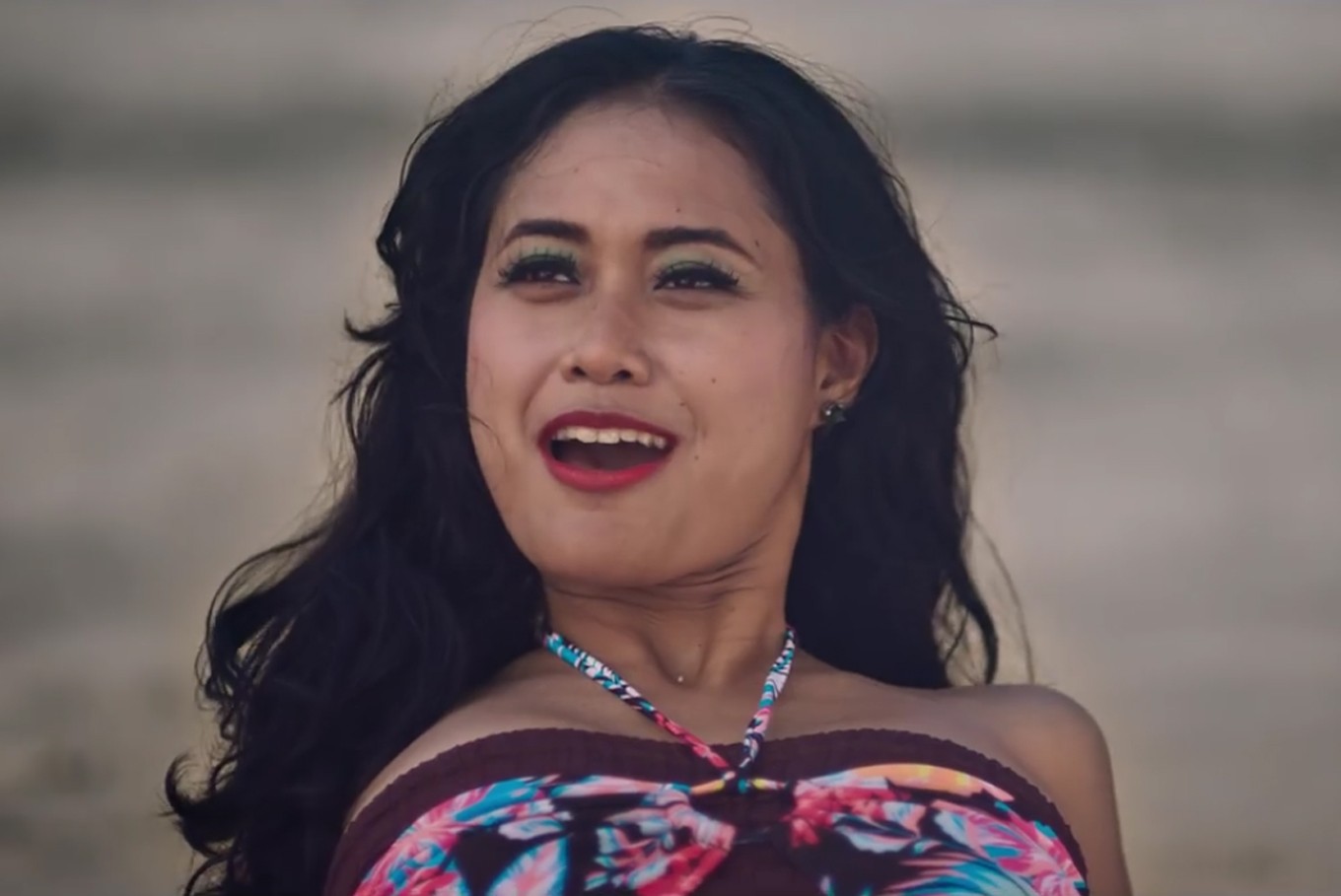Popular Reads
Top Results
Can't find what you're looking for?
View all search resultsPopular Reads
Top Results
Can't find what you're looking for?
View all search results'Kenapa Harus Bule?': Using comedy to combat prejudice
Change text size
Gift Premium Articles
to Anyone
K
enapa Harus Bule? (Why does it have to be bule?) is a powerful comedy that mirrors Indonesian society and its fascination with a “white” ideal.
The film, which hit theaters on Thursday, tries to inspire its audience to look beyond appearances, to not be prejudiced and judge people on what they look like.
Pipin (Putri Ayudya) is a young woman who dreams of being married to a bule, a white foreigner. However, after numerous failed attempts in Jakarta, she decides to join her best friend Arik (Michael Kho) in Bali to try her luck there.
On the island, she is reunited with Buyung (Natalius Chendana), a childhood friend, while at the same time meets an Italian man, Gianfranco (Cornelio Sunny).
What follows is Pipin’s struggle to look beyond what is on the outside to overcome the dilemmas she faces.
“Kenapa Harus Bule? contains so many layers of message,” says the film’s producer Nia Dinata, who is known for tackling controversial topics in her films.
In this film, issues like sexual assault, cat calling and sexual orientation are all addressed.
Kenapa Harus Bule? is the first Viu Original film in Indonesia and is part of the media service’s goal of providing fresh and localized content. The film was shot in Bali over the course of several weeks, but the preparation had already started back in 2016.
Michael’s portrayal of Arik stands out. The character Arik is unapologetically homosexual, something that is becoming more and more a taboo with rising anti-lesbian, gay, bisexual and transgender (LGBT) sentiment gripping Indonesia.
His character is not a one-dimensional stereotype. In fact, throughout the film, Arik carries a voice of reason and touches upon issues that people would rather not think about. “I feel that Arik portrays the unpleasant truth of our society,” Michael says.
“We’re so accustomed to the comforting lies that we’ve heard. I feel Arik has a chance to be the one that tells the truth. To say something that people don’t like.”
For director Andi Cung, the decision to include the gay character was obvious. A lot of the character’s dialogue is critical of Pipin’s fascination with bule men.
“It doesn’t sound genuine if it is two girls talking. And it also cannot be carried by a straight man,” Cung explains. “[Arik’s] conversation with Pipin carries a lot of strong messages, which I think can only make sense if the character is gay.”
Arik’s critique of Pipin’s skin-deep obsession with anything bule is reflected in other aspects of the movie. All bule men in the film are portrayed as stereotypical Westerners prowling for sex.
Cornelio Sunny, who portrays Gianfranco, the bule Pipin meets in Bali, worries that viewers might misjudge the film and perceive the message as “all bules are bad, go for Indonesians”.
“I mean, right now the bad guy is Italian. But I think a bad guy could be from any part of the world. They could be Indonesian as well.”
The portrayal goes hand-in-hand with the continued emphasis on Pipin wanting to stay a virgin until marriage, an ideal ingrained into the character by her mother.
Women in the film who do not adhere to this ideal are indiscriminately labelled as ayam, which the film’s English subtitles translate to either hooker or slut. Of course, this view does not extend towards the men in the film. However, Nia claims that this is to showcase how easy it is to be judgemental. Based on purely someone’s makeup or way of dressing, judgement is already made about someone.
“We automatically think she is a slut, she is not a virgin. We just need to show that you are just being judgemental. And one way of showing that is by having this character stay a virgin.”
Pipin’s transformation from judging a book by its cover, to focusing what is on the inside, is reflected in her appearance in the film as well. “The makeup will pop it out,” said Putri Ayudya, who plays Pipin.
According to Cung, the makeup reflects on the popularity of whitening products across Indonesia. “For me that is degrading and I’m against it totally. You don’t have to have a white skin to be beautiful.”
As a comedy with many different layers of social critique, Kenapa Harus Bule?The film may offend some, while amusing others.
Nia says it’s a film made for Indonesia’s large silent majority that still embraces diversity, and its message against prejudice is something we can all learn from.
***
The writer is an intern at The Jakarta Post











